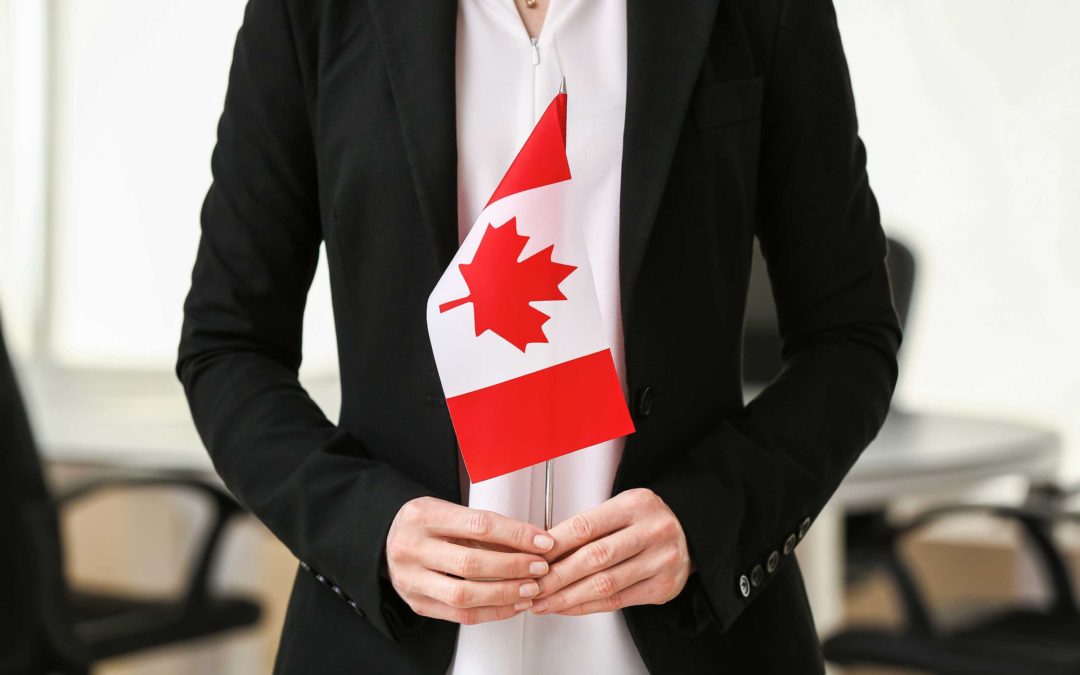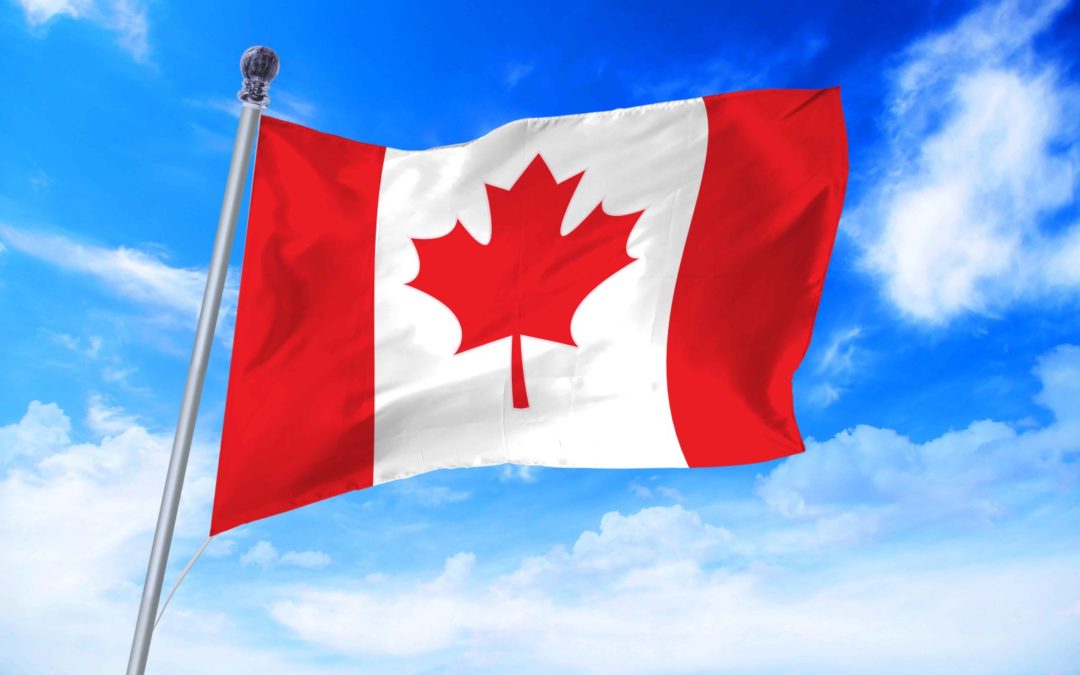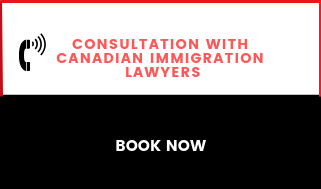
by Immilaw Team | Oct 14, 2021 | Canada Immigration
Applications for spousal sponsorship in Canada receive top priority because it is crucial for families to be together. In this article, we answer some of these questions our clients regularly ask.
- How long does the spousal sponsorship process take in Canada?
- Is spousal sponsorship in Canada easier if you hire a Canadian immigration lawyer?
- How to choose an immigration lawyer?
- Is it possible for me to apply on my own for spousal sponsorship in Canada?
Spousal sponsorship applications can take up to 12 months to process. The process is often faster; however, depending on the nature of the specific case, it may take longer for some. In some complicated cases, the visa officer is likely to ask you for more proof regarding your relationship status, and this can typically delay the spousal sponsorship process.
The best way to ensure that this process takes minimum time is to do it right the first time by hiring an immigration lawyer in Canada. Though it is possible to apply on your own, it is more important to make a correct submission that convinces the visa officers that your relationship is genuine. Moreover, the CIC receives many fraudulent applications daily. So, the visa officers are wary and on guard constantly.
The spousal sponsorship application is approximately 120 to 150 pages long, and filling the application is a long and arduous task. As a result, CIC returns wrongly filled and incomplete applications three months later.
Reasons for Refusal of Spousal Sponsorship Applications
There are a few common reasons for spousal application rejections:
- It is not easy to follow online instructions for filling up spousal sponsorship applications on your own. The process is complex, and applicants only realize many mistakes after rejecting the application forms three months later.
- Rejection of the application forms takes place when the applicant uses outdated application forms or submits incomplete forms. CIC returns such application forms. This can cause a delay of two or three months. In such cases, a PR ban for two years can also come into effect.
- Spouses from non-visa-exempt countries require a TRV to travel to Canada. Therefore, they will not travel to Canada for at least two years unless they possess a TR visa. In cases of refusal of the spousal sponsorship application, IRCC does not approve a TR visa.
Hiring an immigration lawyer and its advantages
Hiring an immigration lawyer makes it easy to file the spousal sponsorship application form with a higher chance of success. Immigration lawyers will make sure to prepare the application form thoroughly and adequately. This will prevent the three-month delay or the spouse from falling out of status in the country.
Hiring an immigration lawyer means they will foresee all the potential issues that cause the visa officer to flag applications for the interview or issue a letter that doubts the genuineness of the relationship or altogether refuse the application.
Spousal sponsorship applications of couples in genuine relationships also see rejections if the genuineness of their relationship status is not projected powerfully or convincingly. This is even more necessary for common-law partners and others whose relationships are just about two years old.
How to choose the best immigration lawyer in Canada
It is a fact that all lawyers are competent in handling spousal sponsorship applications and ensuring a higher chance of success. Therefore, it is essential to select the best Canadian immigration law firm like ImmiLaw Immigration with due diligence and select one adept at working in immigration or handling your application file.
Book Your Appoinment Today
Points to keep in mind when choosing your immigration lawyer in Canada
- Confirm that the immigration lawyer has handled cases at the Immigration Appeal Division (IAD) or Federal Court. Such a lawyer will know to spot potential issues even before they occur. They would also have experience in arguing ‘refused’ spousal sponsorship cases. These would be cases in which the applicants applied on their own or hired weak legal representation. Immigration lawyers also make it a point to draft extensive submission letters attached to the spousal sponsorship application forms. This forms an essential part of the application process and is the first item that the visa officer reads.
- Immigration lawyers attach a submission letter that presents all the issues to the authorities. The contents of this letter depend on each client’s facts and circumstances. It is also important that the immigration lawyer sends the client a copy of the submission letter for review. Client review is essential as it can help to avoid presenting incorrect facts, which amounts to misrepresentation. Misrepresentation is a severe offense and can lead to a five-year ban.
- Spousal sponsorship applications run to about 150 pages, and close to 60 documents go with every application. Though it is not compulsory to hire an immigration lawyer, it is frustrating and difficult for applicants to do this correctly all by themselves. Moreover, for a law firm to collect all these documents by email is not a practical solution. However, it is vital to choose a law firm that uses file-hosting services like Dropbox, through which they can assign shared file access to each of the clients. This allows the firm to be responsive, and they can immediately respond to the client’s queries.
- Lawyer License and Website : You must go through the website of the immigration law firm to get an idea about its credentials and to confirm that lawyers are licensed and experienced.
You can send in your queries to us at info@immilawimmigration.com or call us at 613-704-5757. We will schedule a consultation for you with our expert Canadian Immigration lawyer after we assess your eligibility.

by Immilaw Team | Sep 29, 2021 | Canada Immigration
Immigration Minister Marco Mendicino, on April 14, 2021, announced IRCC’s latest intentions to create new immigration pathways to obtain permanent residence for Essential workers and International students who are currently working in Canada.
Available pathways for Permanent Residence (PR) under the ‘temporary residence (TR) to PR’ immigration programs
The ‘TR to PR’ immigration programs is implemented via particular public policies to grant temporary residence status to temporary workers and international students working in Canada. As a result, these workers possess the necessary skills and experience that will aid Canada’s economic recovery positively from its current level following the COVID 19 pandemic.
IRCC has published four particular public policies (listed below) that will facilitate TR to PR pathways.
- International Graduates in Canada
- International Graduates (French-speaking) in Canada
- Foreign nationals living in Canada having recent Canadian work experience (in sought-after occupations)
- Foreign nationals (French-speaking) living in Canada having Canadian work experience (in sought-after occupations)
TR to PR immigration program for International Students – Qualification criteria
To qualify under the new immigration pathway programs for international students, applicants must satisfy the following requirements:
- They should have graduated from a Designated Learning Institution (DLI) in Canada after January 2017; the study program should be of at least eight months’ duration.
- The student should have received an Associate/Bachelor’s/Master’s/Doctorate degree from the DLI;
- a degree/diploma/certificate/attestation issued after completion of a program (any duration) which leads to a skilled trade/occupation;
- One or more diplomas or certificates or attestations meeting the following conditions:
For diplomas/certificates/attestations, each study program must last eight months in duration; for any combined length of credential (s), the duration must be equivalent to at least 16 months (a two-year credential).
In the case of DVS/AVS, each study program must be a minimum of 900 hours, and the combined program must be a minimum of 1,800 hours. When combining a DVS with an AVS, the duration may be less than 900 hours; however, the combined duration should be a minimum of 1800 hours.
- The student should have held a valid study permit during their entire education period in Canada;
- The candidate should be currently employed in Canada with a valid work authorization permit.
- The student should have CLB level 5 in English/French (within the last two years if applying under the foreign nationals program) or a minimum of CLB level 5 in French (if applying under the French-speaking program).
- The applicant must be residing in Canada on a valid temporary resident status/be eligible to restore status. They should be physically present in Canada when the application for PR is received and approved.
- The applicant must intend to reside in a province/territory outside Quebec.
In addition to the criteria mentioned, all applicants, including dependent family members, must clear medical and criminal background checks and not fall into the ‘inadmissible to Canada’ category.
TR to PR immigration program for essential occupations – Who All Can Qualify
To qualify for the new immigration pathways for essential occupations, applicants should possess the following criteria:
They should demonstrate a minimum of 1 year of full-time work/equivalent work experience (in an eligible essential worker/healthcare worker category). This period should be within the three years immediately prior to the application. In addition, the work experience (of 1 year) must be in one or more of the below-mentioned eligible occupations:
- Healthcare Workers: 1 year of work experience must be in one or more of the occupations mentioned in the list of occupations.
- Essential Worker: One year of work experience must be in one/more occupations mentioned in the list of occupations or a combination of occupations that are classified in the Healthcare Workers/Essential Worker category.
They should be currently employed in Canada at the time when the application for PR is received (in any occupation);
The applicant should meet the definition of a ‘worker’ and also hold a valid work authorization for the period of qualified Canadian work experience.
The applicant should have attained a minimum CLB level 4 proficiency in English/French (within the last two years) when applying under the foreign nationals program and a minimum CLB level 4 proficiency in French when applying under the French-speaking program.
They should be residing in Canada and have valid TR status (or be at least eligible to restore their status). They should also be physically present in Canada when the PR application is received and approved.
The applicant must intend to reside in a province/territory outside Quebec.
In addition to the criteria mentioned, all applicants, including dependent family members, must clear medical and criminal background checks and not fall into the ‘inadmissible to Canada’ category.
‘TR to PR’ immigration pathway Occupations for applicants to qualify as an Essential/Health-care Worker
To qualify for the new immigration pathways under one of the public policies that target Essential Workers and Health-care Workers, applicants must have Canadian work experience of at least one year (in the last three years) in any one of the listed occupations. The IRCC has identified around 100 occupations that come under the ‘essential’ category.
How to apply for any one of the ‘TR to PR’ immigration programs
Applications for the ‘TR to PR’ immigration programs must be submitted electronically by referring to the specific public policy for which the applicant qualifies. IRCC has set up a new application portal with a special design to process applications submitted under the new TR to PR immigration pathways.
New PR immigration programs – Documents to be submitted
IRCC has yet to publish a checklist for the required documentation. However, candidates have to submit the following documents anyway as part of their application:
- Completed application form
- Documents pertaining to civil status
- Education credentials and transcripts of Canadian education credentials (if applicable)
- Language proficiency proof
- Work reference letters (from Canadian employers, if applicable)
- Copy of passport
- Copies of all Canadian immigration permits
- Police clearances
- Results of medical examination
- Digital photograph
All the above-mentioned supporting documentation deemed necessary by the authorities to assess whether a foreign national meets the requisite conditions of the newly announced public policies should be furnished along with the application.
Commonly Asked Questions
Do I have to show settlement funds while applying under the new TR to PR immigration programs?
The applicant does not have to show settlement funds when applying for any of the new TR to PR immigration programs, unlike the other immigration programs to Canada.
What is the approximate cost of the new TR to PR immigration programs?
Applicants will have to pay a total processing fee of CAD 1050 (along with their applications) under any new PR programs. In addition, the applicant will also have to pay the processing fees for an accompanying spouse and dependent children or common-law partner if they are also included in the application.
Is it necessary to have a job offer on hand to apply for the new TR to PR immigration programs?
It is not required that applicants have a job offer on hand from a Canadian company when applying for PR under one of these new immigration programs. Eligibility under these programs is based on the applicant’s previous education/work experience in Canada and not on future employment offers.
The new public policies for Essential/Health-Care Workers require that the applicant have at least one year of work experience in Canada (within the last three years).
In public policies for International graduates, the applicant has to be currently working in Canada. However, under these policies, there are no stipulations on the type of work experience required.
What is the time taken to process applications under the new TR to PR immigration programs?
There are no indications in the new public policies regarding the length of time IRCC will take to process these applications. However, these programs are ‘accelerated’ Canadian immigration pathways. The main objective of these newly introduced public policies is to allow foreign nationals/International graduates to obtain PR in Canada and help aid the country’s economic recovery. IRCC has committed to processing approximately 40,000 applications received under the TR to PR immigration programs this year. The remaining applications have been kept aside for processing in 2022.
Can the applicant include the spouse’s and dependent children’s names in the PR application form under the new TR to PR immigration programs?
Under any of the four new public policies facilitating immigration to Canada, eligible spouses/common-law partners, and dependent children, can have their names included in the PR application. That is, they will also be granted PR status under these new programs.
Does the new ‘TR to PR’ immigration program have a cap on the number of applications that will be accepted?
The new public policies for Essential workers/International graduates that facilitate Canadian immigration limit the application numbers that will be accepted for each of the streams.
- 40,000 applications (International Students)
- 30,000 applications (Essential Workers)
- 20,000 applications (Health-Care Workers)
The intake limit for the International students’ category reached its 40,000 limits on May 7, 2021, and for Essential Workers on July 16, 2021.
There is no number cap set for French-speaking Essential Workers/International Graduates in the new public policies for Canadian immigration. This means that IRCC will process all the eligible applications submitted under the two new public policies if the application is submitted before November 5, 2021.
Will IRCC re-open the TR to PR immigration programs if the intake numbers have already reached the set limits?
As of today, the number limits for International students and Essential worker streams have been reached. Therefore, no candidate is eligible to apply under these streams unless they demonstrate the required proficiency in French.
Marco Mendicino, Canada’s Immigration Minister, has indicated that IRCC may re-open the new immigration programs to allow more candidates to put in their applications.
The new public policies introducing these ‘TR to PR’ Canadian immigration programs are valid until November 5, 2021. Therefore, any re-opening of the immigration caps will have to be done prior to this date if the public policies are not extended.
For any applicant who is currently living and working in Quebec, is it possible for them to submit their application under any one of the new TR to PR immigration pathways if they satisfy the eligibility criteria?
Any individual, who satisfies all the new immigration program criteria, including residents of Quebec, may apply. However, in the case of applicants residing in Quebec at the time of submission of the application, they should express their intent to reside outside the province.
After PR status is granted to the applicant under any newly introduced TR to PR immigration programs, can the applicant decide to live anywhere they want in Canada?
All four new immigration pathways have been set up for immigrants who wish to settle in Canada (except inside Quebec).
Is it possible for me to apply for an open work permit if I have applied under one of these new TR to PR immigration programs?
From July 26, 2021, those who have applied to any new TR to PR immigration programs can apply for a ‘TR to PR’ open work permit.
However, to apply for an open work permit in Canada, the applicants must:
- Have applied under any one of the new TR to PR immigration programs
- Possess a valid work authorization
- Possess a work permit that is fixed to expire in a period of four months
- Be currently residing in the country
- Hold a TR status/maintained status/eligible to restore their status
- Continue to meet any language requirements for the new TR to PR pathway stream they have applied under
If all the conditions are satisfied and once approved, the ‘TR to PR’ open work permits will be issued to the eligible applicants until December 31, 2022.
For how long will the new ‘TR to PR’ immigration programs be available?
All the newly introduced four special public policies governing the ‘TR to PR’ immigration pathway programs are to be launched on May 6, 2021 and are scheduled to close on November 5, 2021, or when the intake limit for the applicant numbers for the specific stream has been reached, whichever is earlier. However, any application that is submitted after November 5, 2021, will not be accepted.
If you want to begin your Canadian immigration journey through any of these new TR to PR programs, contact us today at Immilaw Immigration Law Professional Corporation– Canadian Immigration Law Firm to schedule a consultation with one of our Immigration Lawyers!

by Immilaw Team | Sep 28, 2021 | Canada Immigration
A permanent resident (PR) of Canada may need to leave Canada from time to time for various reasons. To enter Canada on his return, he has to present his PR card confirming his permanent resident status.
The PR cards are valid for five years and sometimes for lesser durations. The expiry of a PR card does not mean loss of Canadian permanent residency. It only means that the person cannot re-enter Canada on an expired PR card.
A person can apply for a PR card only from inside Canada. If the PR card expires when the person is outside Canada, he cannot apply for a new PR card. The permanent resident has the option to apply for a Permanent Resident Travel Document (PRTD) to re-enter Canada.
A person should be a permanent resident and be residing outside Canada to apply for the PRTD. The application costs CAD 50.
The validity of the PRTD is six months. The resident can re-enter Canada within this period and can use the PRTD only once. After that, he has to apply for a new PR card on entering Canada.
The person applies for a PRTD via mail from the nearest Canadian Visa Application Centre (VAC). Or they can apply online if unable to send by mail to the VACs.
The person must submit their original passport with the application. Sometimes they will have a personal or virtual interview. If the application is successful, the PRTD comes as a counterfoil on the passport.
The government provides details of all VACs on their website for permanent residents overseas. However, some of the VACs are not there now. In addition, some do not accept PRTD applications due to the Covid-19 situation.
The Covid situation and the individual nature of each case prolong the processing time for the PRTD.
Book Appoinment Today
At ImmiLaw Immigration we have a team of qualified and professional immigration lawyers to ensure your immigration process will be smooth and fast. You can send in your queries to us at info@immilawimmigration.com or call us at 613-704-5757. We will schedule a consultation for you with an expert Canadian Immigration lawyer after we assess your eligibility.

by Immilaw Team | Sep 23, 2021 | Canada Immigration
An international student has to decide on which province of Canada they want to study in. The deciding factors are the benefits of studying and the permanent immigration options the province offers to you.
Which province should I study in?
There are many options when choosing a school to study in Canada. Therefore, it is a good idea to research thoroughly before deciding on the province.
If you prefer living in a city, you might want to opt for Toronto or Vancouver. On the other hand, you can opt for the Atlantic regions if you prefer calm and quiet places. Knowledge of the best schools and their programs that will lead to the best jobs will help you select the province.
Staying in Canada after you study
International students, on completion of studies, like to stay in the country. Canada offers a range of permanent residence immigration programs to welcome those students who would like to immigrate.
The Provincial Nominee Programs stipulate that the student should have a valid post-graduation work permit. A student is eligible to apply for this work permit on graduating from an accredited institution. The study program should be of a duration of at least one year. You have to apply for the post-graduation work permit within 90 days of graduation.
A student with a post-graduation work permit can work and live anywhere in Canada.
What are the best Provincial Nominee Programs (PNP) for international students who have studied in that province?
The Provincial Nominee Program (PNP) is an immigration program that each province operates on its own. Consequently, each territory and province have different PNPs tailored to fit their economic and demographic requirements.
Under the PNP immigration program, the province nominates a foreign national for permanent residence in Canada. The nominated person can then apply for Canadian permanent residence.
Listed are a few provinces with PNPs tailored to students who have studied there.
Alberta Post-graduate worker:
You are eligible for this stream if you have completed a post-secondary graduation program from an accredited institution in Alberta. The course should have been of a year’s duration. It would help if you worked in the province at the time of applying.
BC International post-graduate category:
This category requires you to complete a Master’s or Doctoral degree from an institution in British Columbia. This stream enables you to apply directly for provincial nomination. A job offer is not required.
Ontario Masters and Ph.D. graduates:
A Master’s or Doctoral Degree from an accredited institution in Ontario permits you to apply for provincial nomination. Ontario has strict quotas under this stream. You have to keep abreast of their periodic updates.
Atlantic provinces:
Canada’s Atlantic provinces are implementing a study to stay program. This program will assist international students in their studies in Canada. The program includes career guidance and training and provides networking opportunities. In addition, the Atlantic provinces have PNP streams designed to help students obtain Canadian permanent resident status.
What are the Provincial Nominee Programs available to international students who have studied in Canada, other than the province hosting the PNP?
Many international students graduate from institutions in one province but secure employment in other provinces. There are PNPs designed for this category of students.
To apply under all these programs, you must have:
- A valid post-graduation work permit
- Employment in the province you are applying from.
- An official offer of employment from the employer stating that you can continue working there.
Listed below are PNPs for international students who have graduated from institutions anywhere in Canada.
Alberta International Graduate:
You are eligible to apply for provincial nomination under this program if you are working in Alberta at the time of application. In addition, you should have completed a post-secondary program of education from anywhere in Canada.
BC International Graduate:
You can opt for this program if you have completed a post-secondary program from anywhere in Canada. In addition, you should be working or have a job offer from British Columbia. This program also requires two years of full-time work experience in a similar job offered to you.
Ontario International Students:
You are eligible under this program if you have obtained post-secondary graduation from anywhere in Canada and a job offer from an employer in Ontario. This program specifies that Canadian education should have been of a two-year duration. A study program of one-year length is acceptable if a previous degree is required to enter the program.
Other options:
PNP is one of the many ways to obtain Canadian permanent residence. In addition, the Express Entry system has other programs. For example, you can apply under the Canadian Experience Class if you have one year of work experience in Canada.
You may submit an assessment form on our website. Alternatively, you can steer an email to us info@immilawimmigration.com or give us a call at 613-704-5757. We will assess your eligibility and schedule a consultation for you with an expert Canadian Immigration lawyer.






